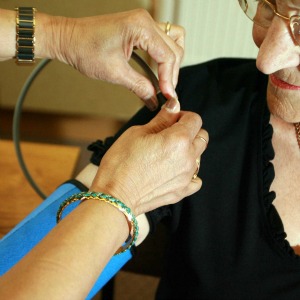The NHS is recruiting 200 physician associates from the USA to GP practices and hospitals on an annual salary of £50,000 in a bid to immediately alleviate workforce issues in the hardest hit regions of England.
On Thursday, the new ‘National Physician Associate Expansion Programme’ began advertising vacancies across four English regions to experienced US physician associates (PA), including for 20 GP practices across North West London, practices in Leicester and for primary care positions in Sheffield Teaching Hospitals NHS Foundation Trust.
The positions will start immediately, and will continue for two years while the first cohorts of UK PAs are being trained.
It comes after health secretary Jeremy Hunt’s ‘new deal’ promised that the NHS would recruit 5,000 PAs, nurses and pharmacists to work in primary care by 2020.
Physician assistants are dependent practitioners who is able to undertake delegated medical work, supervised by a qualified GP, such as obtaining medical histories, conducting comprehensive physical exams, requesting and interpreting tests, diagnosing and treating illnesses and injuries, and advising on preventive health care.
Earlier this year Pulse found that NHS Leicester City CCG had spent £600,000 to bring over ten US trained physician associates to work the city’s general practices.
However, this wide-ranging programme – led by Hillingdon Hospitals NHS Foundation Trust and not connected to the Leicester scheme – will also introduce US-trained PAs to different regions of England.
The job application states candidates must have significant clinical experience as a PA and/or completion of a post-graduate residency or fellowship program, as well as valid US or UK registration and evidence of CPD.
The £50,000 salary is based on a 48-hour week, but the positions come with 33 days paid leave plus bank holidays, ‘generous protected non-clinical time’ for CPD and working with PA leadership programmes, and a financial contribution to relocation.
Related stories
‘We want to show what physician associates can do’
It will also reimburse membership costs for joining the Royal College of Physicians, and costs of registering with the voluntary commission for PAs in the UK.
North West London, Yorkshire, Humber and Newcastle, the East Midlands and North West England are all set to benefit from an influx of PAs, to support GPs and hospital doctors.
Pulse has already shown that the latter three areas have been among the worst hit by problems recruiting newly qualified doctors to GP training.
In the East Midlands more than 40% of places for this August’s intake of GP training were left unfilled, and the North East had almost half of its places vacant.
Dr Nick Jenkins, the programme director, said they hoped to have the first PAs in place by the end of the year, adding: ‘The whole raison d’etre of NPAEP is to do ourselves out of business. We’re not here for any long-term purpose. I’m an A&E consultant, and I can tell you the problem is now, we’re spending a lot of money on locums, we’ve got patients whoneed seeing, and I think PAs are part of the solution to many of the challenges we face.’
‘But you can’t train them overnight, so to help in the short-term we need to bring in experienced people from elsewhere.’
Dr Richard Vautrey, deputy chair of the GPC, has previously told Pulse that PAs weren’t a substitute for employing GPs, but added: ‘We do need to recognise there aren’t enough GPs or junior doctors wanting to be GPs so we do need to look for alternatives to meet the need. Physician associates, or assistants, aren’t GPs but they can certainly provide some support
PAs in America also have prescribing powers, which are currently not available to UK PAs.
However, Pulse has already revealed that the Department of Health is evaluating the introduction of powers in future.
Pulse October survey
Take our July 2025 survey to potentially win £1.000 worth of tokens















